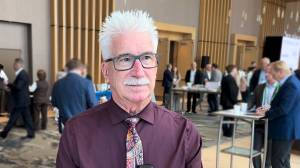States should take on more risk, overhaul procurement processes — panel

BALTIMORE — State IT leaders can learn a lot from the private sector and even the federal government when it comes to procurement, according to a panel of experts on the subject.
Here at the National Association of State Chief Information Officers’ midyear conference Wednesday, government officials and procurement lawyers agreed that states need to act quickly to reform their procurement practices.
Alex Pettit, Oregon’s chief information officer, specifically pointed to the most recent survey of state CIOs by the association showing that just 4 percent of respondents were “very satisfied” with their procurement process as evidence of the importance of the subject. Robert Metzger, an attorney specializing in government contracts with the firm Rogers Joseph O’Donnell, said that mirrors what he’s heard from his clients in the private sector, and he sees an urgent need for reforms in the area.
“If the process becomes an obstacle to innovating and getting successful outcomes, it’s not working and we need to do it differently,” Metzger said.
Dave Zvenyach, acquisition management director with the federal General Services Administration’s 18F, thinks some of his group’s work can provide a roadmap for how states can make those kinds of changes. Zvenyach specifically said 18F puts a focus on “making federal acquisitions joyful” by encouraging a more open dialogue between contract officers and companies themselves.
Part of that work involves changing the way the federal government thinks about risk, an area that Zvenyach believes has become a huge sticking point in the world of government contracting.
“Often, contracting officers aren’t even aware of risk with a project, and they’re just passing it onto vendors,” Zvenyach said. “They’re not telling people whether something could live in the cloud versus a data center, and that doesn’t help anyone.”
Accordingly, he’s working to help get the federal government to start taking on more risk in contracts, rather than simply trying to make its private sector partners completely liable for anything that goes wrong with a project.
“It might be nice to have just one throat to choke, but it’s a false facade of security,” Zvenyach said. “At the end of day, if users don’t get the benefit of the system, then nobody wins.”
Indeed, at the state level, Metzger said he feels high-profile failures of IT projects like Oregon’s health care exchange have encouraged states to become increasingly risk averse — to their detriment.
“It’s amazing to me that we’re still arguing about the need to avoid unlimited liability in contracts, when that argument was settled in the private sector years and years ago,” Metzger said.
But Zvenyach also hopes to see states start moving faster by adopting tactics like agile development, and molding their procurement practices accordingly.
“Fitting procurement around that is challenging, so we’ve been trying to hack the procurement process,” Zvenyach said. “We’re trying to set requirements for awards in weeks, not months.”
Yet Metzger cautioned that there’s a reason the government procurement process has moved slowly in the past, and he hopes that states can strike a balance as they consider the other side to moving faster.
“The procurement process, if it moves too fast, could become unfair, and depend on factors beyond just who provides the best value,” Metzger said.
He thinks a good compromise might be to have states start issuing more requests for information as a way to define their “goals and objectives,” but still give vendors a short window to “present, demonstrate or even pilot” their systems with the government.
“We need to think outside the box,” Metzger said. “States are often isolated from best in class commercial technologies, and that doesn’t need to be the case.”
Contact the reporter at alex.koma@statescoop.com, and follow him on Twitter @AlexKomaSNG.






